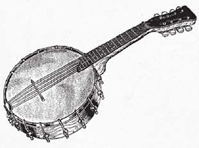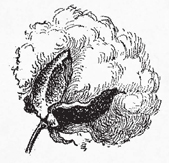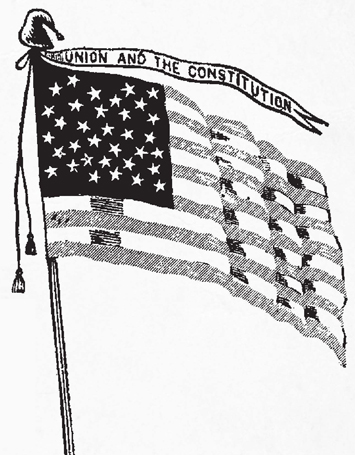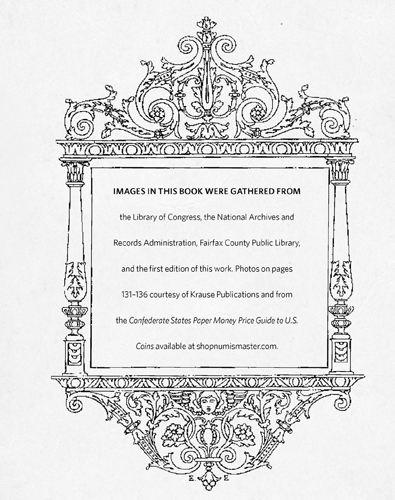E
SONGS AND POETRY

The Civil War produced a large body of songs that reflected the attitudes of the period and modern readers can go a long way toward understanding the people of the era by knowing the words to the songs they sang. Period songs reflect a wide range of sentiments and emotions, from patriotism and love of country, to derision of the enemy, to the melancholy and suffering that attended life in camp, on the march, and in battle.
Songs that became popular during the Civil War included “John Brown's Body” (whose author is disputed, but which became popular with Northern soldiers upon the outbreak of war), “The Battle Cry of Freedom” (George Frederich Root, 1861), and “Marching Through Georgia” (Henry Clay Work, 1865).
Much poetry was also written about the war, and this tended to be a bit more critical than the songs. For example, “The Picket Guard” (Ethel Lynn Beers, 1861) is a sarcastic response to stories in Union papers about Maj. Gen. George McClellan's inability to advance against the Confederacy in the weeks — and ultimately months — after his defeat at Bull Run.
Poet Walt Whitman was one of the many people to tend wounded soldiers during the Civil War. He served as a volunteer assistant in a military hospital in Washington, DC. In his 1865 book of poems Drum-Taps, he incorporated scenes of battle described to him by convalescing soldiers.
Song Lyrics
Dixie's Land
In the early years of the war, many popular songs were common to both sides. “Dixie's Land,” written by Daniel Decatur Emmett — a Northerner from Mount Vernon, Ohio — and now associated entirely with the South, was in 1861 widely sung on both sides. As the war progressed, however, and the opposing cultures became more and more separated from each other, songs became more partisan in nature.

I wish I was in the land of cotton,
Old times there are not forgotten;
Look away! Look away! Look away, Dixie's Land!
In Dixie's Land where I was born in,
Early on one frosty morning,
Look away! Look away! Look away, Dixie's Land!
CHORUS: Then I wish I was in Dixie! Hooray! Hooray!
In Dixie's Land I'll take my stand, to live and die in Dixie!
Away! Away! Away down South in Dixie!
Away! Away! Away down South in Dixie!
Old Missus married “Will the Weaver”;
William was a gay deceiver!
Look away! Look away! Look away, Dixie's Land!
But when he put his arm around her,
Smiled as fierce as a forty-pounder!
Look away! Look away! Look away, Dixie's Land!
CHORUS
His face was sharp as a butcher's cleaver;
But that did not seem to grieve her!
Look away! Look away! Look away, Dixie's Land!
Old Missus acted the foolish part
And died for a man that broke her heart!
Look away! Look away! Look away, Dixie's Land!
CHORUS
Now here's a health to the next old missus
And all the gals that want to kiss us!
Look away! Look away! Look away, Dixie's Land!
But if you want to drive away sorrow,
Come and hear this song tomorrow!
Look away! Look away! Look away, Dixie's Land!
CHORUS
There's buckwheat cakes and Injin batter,
Makes you fat or a little fatter!
Look away! Look away! Look away, Dixie's Land!
Then hoe it down and scratch your gravel,
To Dixie's Land I'm bound to travel!
Look away! Look away! Look away, Dixie's Land!
CHORUS
The Battle Hymn of the Republic
One of the most characteristic and stirring songs of the war, “The Battle Hymn of the Republic” was set to a popular drinking tune usually adapted to far more bawdy lyrics (e.g., one popular version of the time includes the line, “John Brown's body lies a moldering in his grave”). Its moving words reflect some of the fervent beliefs and attitudes that prevailed during the war. Julia Ward Howe wrote it in November 1861 after being inspired by a review of Union troops and deciding the popular tune needed more redeeming words. It was first published in The Atlantic Monthly in 1862.
He is trampling out the vintage
Where the grapes of wrath are stored
He hath lossed his fateful lightning of his terrible
swift sword,
His truth is marching on.
CHORUS: Glory! Glory! Hallelujah!
Glory! Glory! Hallelujah!
Glory! Glory! Hallelujah!
His truth is marching on.
I have seem Him in the watchfires of a hundred
circling camps,
they have builded Him an altar in the evening dews
and damps.
I can read His righteous sentence by the dim and
flaring lamps;
His day is marching on.
CHORUS
I have read a firey gospel Writ in burnished rows of steel
As ye deal with my condemners,
So with you my grace will deal;
Let the hero born of woman
Crush the serpent with His heel;
Since God is marching on.
CHORUS
He has sounded forth the trumpet that shall never
sound retreat;
He is sifting out the hearts of men beneath his
Judgement Seat.
Oh! Be swift, my soul to answer him, be jubilant,
my feet!
Our God is marching on.
CHORUS
In the beauty of the lilies Christ was born across the sea
With a glory in his bosom
That transfigures you and me;
As He died to make men holy let us die to make
men free,
While God is marching on.
Victory's Band
The following 1861 song by Daniel Decatur Emmett reflects some of the vindictiveness that crept into songs as the war progressed. Sung to the tune of his “Dixie's Land,” its lyrics seem coarse and jingoistic when compared to those of the original.
We're marching under the Flag of Union,
Keeping step in brave communion!
March away! march away! away! Victory's band!
Right down upon the ranks of rebels,
Tramp them underfoot like pebbles,
March away! march away! away! Victory's band.
CHORUS:
Oh! we're marching on to Victory!
Hurrah! hurrah!
In Victory's band we'll sweep the land,
And fight or die for Victory!
Away! away!
We'll fight or die for victory!
The rebels want a mongrel nation,
Union and Confederation!
March away! march away! away! Victory's band!
But we don't trust in things two-sided,
And go for Union undivided,
March away! march away! away! Victory's band.
CHORUS
We're marching down on Dixie's regions,
With freedom's flag and freedom's legions.
March away! march away! away! Victory's band!
We're rolling down, a “Pending Crisis,”
With cannon-balls for Compromises,
March away! march away! away! Victory's band
CHORUS

Tenting on the Old Camp Ground
Written in 1864 by Walter Kittredge, this song, and many like it, is a striking counterpoint to the earlier patriotic songs. Many commanders prohibited their soldiers from singing such songs, based on the rationale that they lowered morale. Such moves were misguided, however, as soldiers were still thinking the things expressed in the songs, even if they were deprived of an outlet for expressing them. Such prohibitions tended to be ineffective and short-lived, in any case.
We're tenting tonight on the old Camp ground.
Give us a song to cheer
Our weary hearts, a song of home,
And friends we love so dear.
CHORUS Many are the hearts that are weary tonight,
Wishing for the war to cease;
Many are the hearts looking for the right
To see the dawn of peace.
Tenting tonight,
Tenting tonight,
Tenting on the old Camp ground.
We're been tenting tonight on the old Camp ground,
Thinking of days gone by,
Of the lov'd ones at home that gave us the hand,
And the tear that said, “Good bye!”
CHORUS
We are tired of war on the old Camp ground,
Many are dead and gone,
Of the brave and true who've left their homes,
Others been wounded long.
CHORUS
We've been fighting today on the old Camp ground,
Many are lying near;
Some are dead and some are dying,
Many are in tears.
CHORUS
Many are the hearts that are weary tonight,
Wishing for the war to cease;
Many are the hearts looking for the right
To see the dawn of peace.
Dying tonight,
Dying tonight,
Dying on the old Camp ground.

